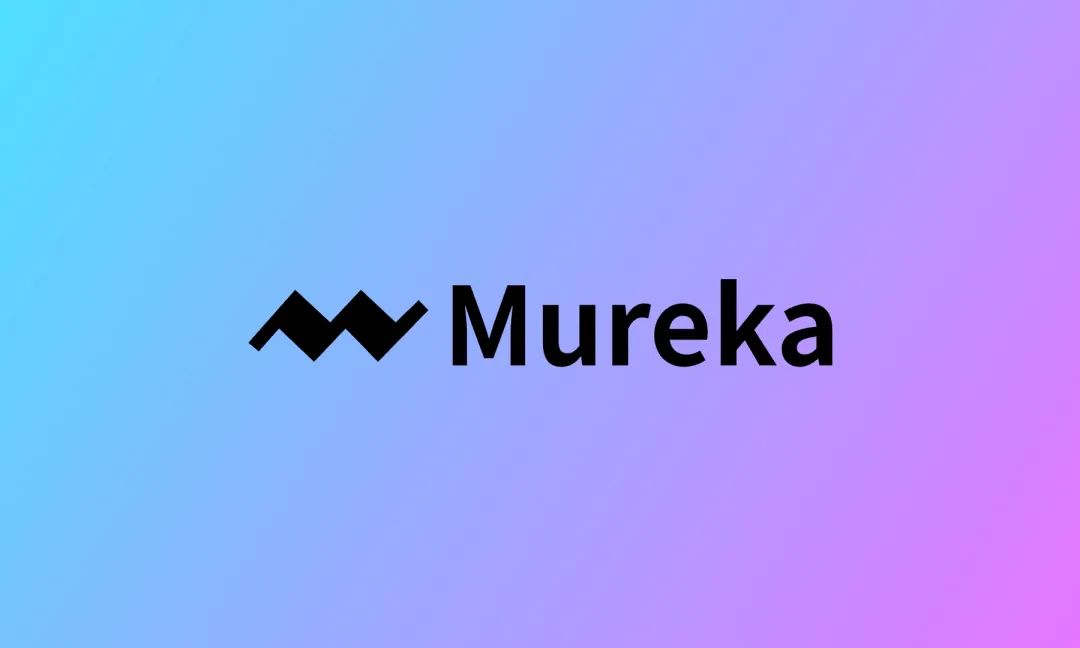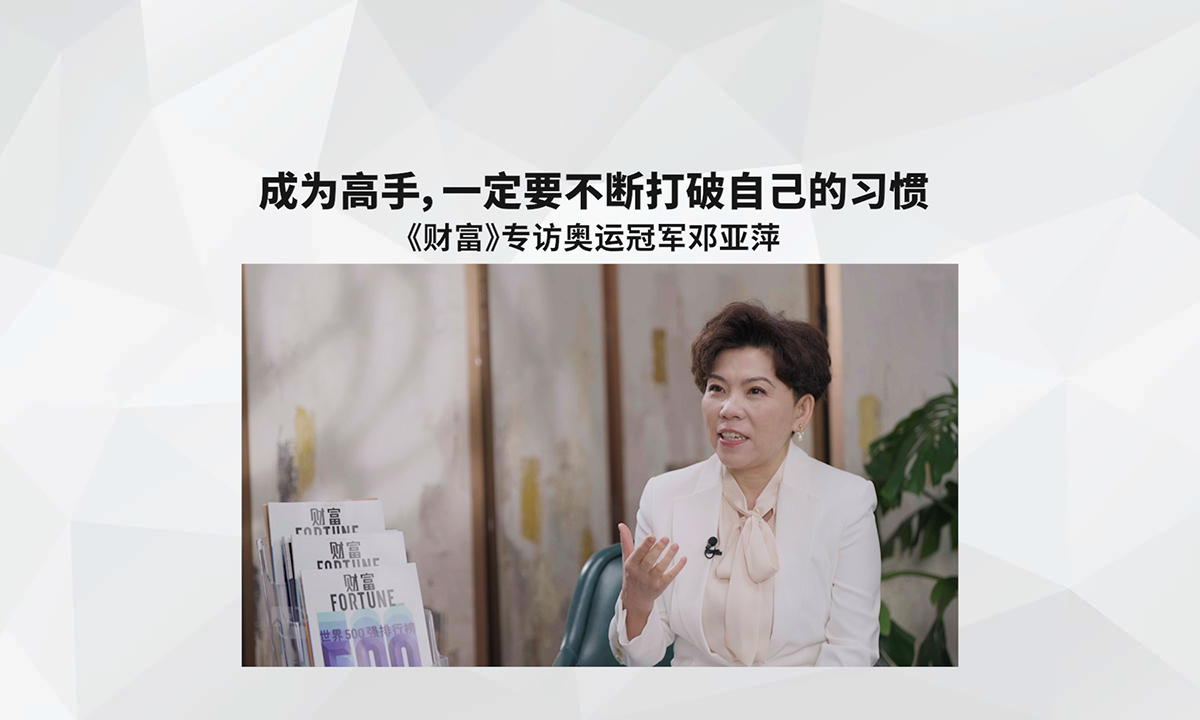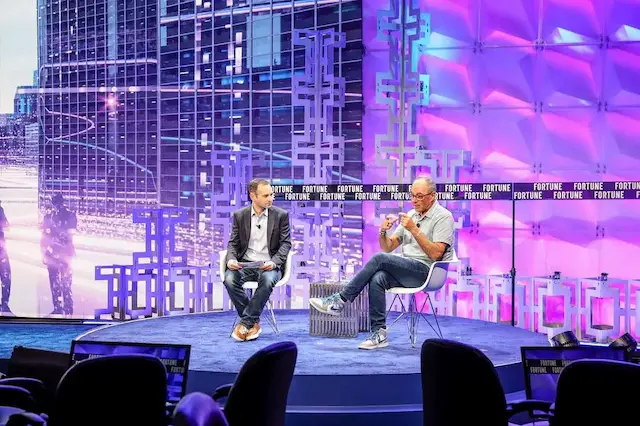小默多克不惧犯错
|
作为媒体界大亨鲁伯特•默多克的儿子和新成立的21世纪福克斯(21st Century Fox)的副首席运营官,詹姆斯•默多克并不害怕犯错误。在今年科技头脑风暴大会(Brainstorm Tech)的第一次晚宴上,默多克发表了演说,看起来他似乎更担心犯的过错不够多。默多克注视着观众,灯光照在他的眼镜上,反射出耀眼的光芒。他说道:“如果一个人因为失败而丧失勇气,他就永远不会成长。”
默多克很快就举出了许多有趣的例子:仅在平板设备上发行的电子报The Daily耗费了大量资金之后去年突然黯然关闭;社交媒体领域的先行者MySpace,2005年被新闻集团(News Corp.)以5.8亿美元的价格收购,六年后却只卖出了3,500万美元;当然,还有导致《世界新闻报》(News of the World )被停刊的电话窃听丑闻。这起丑闻同时也促使默多克将重心从缺乏刺激点的旧媒体资产向有利可图的电视与电影资产转移。
对于新闻集团的拆分,40岁的默多克认为,这是一个理性的选择,而非被逼无奈的做法。新闻集团将包括《华尔街日报》(Wall Street Journal)等报纸,而21世纪福克斯将包括电影与电视产业。
默多克提到了新闻集团历史上1985年至2007年这段时间。那时,公司积累了广泛的资产,如报纸、电视网络、电影制片厂和卫星付费电视等。默多克说:“2010年,为了集合来自各个产业的38名运营CEO,不得不牺牲某些人的利益。当时非常困难。似乎每一个业务独立来看都更有意义。”
默多克对媒体行业有强烈的兴趣,原因有很多。尤其是他有时会被视为在为他的父亲赎罪。外界都认为,他将是父亲全球帝国的铁定继承人——经历过辍学并且曾在唱片行业创业失败的默多克给人们留下了深刻印象。然而,在默多克担任新闻集团欧洲及亚洲业务负责人时,集团在英国的周日小报被曝出非法窃听政界人士、名人、老兵和一位年轻的谋杀案受害人,默多克一下子被推到了风口浪尖。
去年2月份,默多克辞去了英国新闻部门执行总裁的职位;4月份,他辞去了新闻集团旗下英国天空广播公司(BskyB)董事长的职位。新闻集团持有这家广播公司40%的股份。周一晚上,默多克表示,21世纪福克斯不打算买下它的剩余股份。但公司也不会出售当前持有的股份。默多克表示,天空广播公司在德国和意大利依然有不错的表现。
对于新闻业的未来,默多克听起来非常乐观,但也有些模棱两可。在正式谈论之前,他先提出了警告:“新闻界的派别之争非常危险。”他说:对于传统媒体来说,“这次拆分将是最令人振奋、最积极的一件事。”他说的是时代华纳(TimeWarner)拆分时代公司(Time Inc)这件事。时代公司也是《财富》杂志(Fortune)的母公司。默多克似乎认为,大的新闻业品牌未来肯定有利可图。
这位年轻的高管身穿牛仔,显得非常放松。他在接受《财富》杂志亚当•拉辛斯基采访时不时放声大笑,而且还把坐在观众席里的妻子指给大家看。他对于电视的话题更有热情。他说:“电视行业正在经历一次创造性的复兴。这是一个属于电视的伟大时代。”由于互联网给新节目创造带来了障碍,默多克表示,网络和内容制作商不可能再走“中庸路线(节目)”。
另外一个他非常感兴趣的领域是:体育。默多克承诺,21世纪福克斯在体育领域的新尝试将是公司新举措的象征。用他的话说,就是“永远不要高估消费者对于现状的满意程度。”(财富中文网) 译者:刘进龙/汪皓 |
James Murdoch, son of mogul Rupert Murdoch and deputy chief operating officer of the newly formed 21st Century Fox, is not afraid of his mistakes. Speaking at a dinner on the first night of this year's Brainstorm Tech conference, Murdoch seemed, if anything, more afraid ofnot taking enough missteps. "If you become paralyzed by your failures, you won't grow," Murdoch said looking out into the audience, light reflecting off his glasses.
Murdoch was quick to tick off wince-worthy examples: The Daily, an ill-fated, tablet-only publication which burned through mounds of cash before being unceremoniously shuttered last year; MySpace, a social media pioneer that News Corp. (NWS) bought for $580 million in 2005 and sold for a paltry $35 million six years later; and, of course, the phone hacking scandal that not only led to the demise of the News of the World but also set the stage for the splicing of the Murdochs' lucrative television and film properties from less-exciting, old-media holdings.
Murdoch, 40, painted the split -- News Corp will consist of newspapers like the Wall Street Journal, while 21st Century Fox will include the film and TV businesses -- as a rational move, rather than one forced by events.
Murdoch pointed to the period in News Corp's history between 1985 and 2007 when the company grew to include far-flung assets such as newspapers, television networks, movie studios, and satellite pay-TV. "In 2010, to gather all those leaders, 38 different operating CEOs, the interests of each one wasn't necessarily best served. It was [difficult]," Murdoch said. "Each business would make much more sense separately," he added.
Murdoch is a figure of intense interest in the media business for many reasons, not least of which is that he has, at times, been seen as paying for the sins of the father. He was widely believed to be the heir-apparent to his father's global empire -- impressive for a dropout who once dabbled unsuccessfully in the record business. But that future took a detour following revelations that -- while Murdoch was head of News Corp. Europe and Asia -- the group's British Sunday tabloid eavesdropped illegally on politicians, celebrities, veterans, and a young murder victim.
In February last year, Murdoch resigned as executive chairman of the British newspaper division; in April he stepped down as chairman of News Corp.'s U.K.-based broadcasting arm BSkyB, of which News Corp. owns a 40% stake. Monday night, Murdoch said 21st Century had no plans to seek to buy out the rest of the company, as it once had. Nor does the firm have any plans to drop its stake. Murdoch said the Sky businesses in Germany and Italy are doing well, however.
On the future of journalism, Murdoch sounded an optimistic-if-vague note. "Factionalism around the press is dangerous," he warned before going on to say, "This split is going to be one of the most refreshing and empowering things" for traditional media. He was talking about TimeWarner's cleaving Time Inc, which publishes Fortune, as well. Murdoch also seemed to suggest that big journalism brands would go on to have a lucrative future.
The young executive, who appeared relaxed wearing jeans, pointing out his wife in the audience, and laughing during the interview with Fortune's Adam Lashinsky, was more immediately enthusiastic on the topic of TV. "The television business is going through a creative renaissance," he said. "It's a great period for TV." As the Internet levels barriers to creating new programing, Murdoch said networks and content creators will no longer be able to pump out "middle of the road [shows]."
One area of intense interest: sports. 21st Century's push into new sports ventures will be emblematic of the company's new approach, Murdoch promised. That would be, in his words, to "never overestimate the customer's satisfaction with the status quo." |












